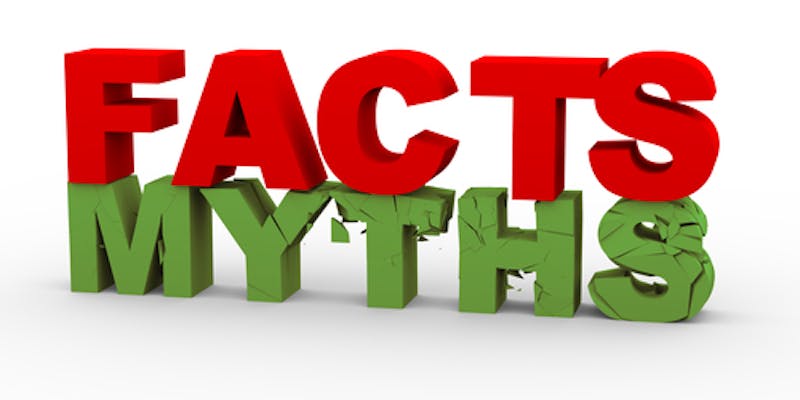Motorcycles and facts about motorcycle accidents are a mystery to most of us. The majority of drivers spend their commute in car traffic, with a sprinkling of motorcycle interaction in the mix. Opinion and common myths about motorcycle accidents often stem from a combination of unfamiliarity and news coverage that only highlights deadly crashes. What is there to know about motorcycles and the causes of motorcycle accidents?
Myth 1: Helmets Don’t Make A Difference
The evidence is overwhelming – helmets do make a difference, and significantly reduce the chance of a severe head injury during an accident. A recent study of motorcycle accident deaths showed that for every 100 motorcyclists killed, 37 would have survived if wearing a helmet. The motorcycle culture has changed drastically in the past decade, and helmets are more acceptable than ever. Some continue to ride without, and they put themselves at risk for severe injury or death.
Myth 2: Turning Cars Cause Crashes
Partially true, but more specifically – left hand turning cars are the most dangerous. This is the single most dangerous situation for motorcyclist, accounting for 42% of all motorcycle accidents. The smaller size of a motorcycle reduces visibility and makes the speed of the cycle difficult to anticipate. Almost always the car turning left will be the party responsible for the accident. If a car turning left into your lane has hurt you, contact the personal injury attorneys at the McCraw Law Group for a free consultation on financial damage recovery.
Myth 3: Lane Splitting Can Be Done Safely
Lane splitting is dangerous and a common cause of motorcycle accidents. Splitting traffic lanes puts cycles in closer proximity, reduces maneuvering space, and reduces reaction time for passenger cars. Some motorcycle groups have argued for legislation to allow lane splitting, but for now it remains a gray area of the law open to interpretation of traffic officers.
Myth 3: Motorcycles Easily Avoid Road Hazards
While motorcycles offer heightened maneuverability when avoiding hazards at distance, motorcycles also face higher accident numbers when faced with unexpected objects. Hazards like car or roadway debris can harm a passenger vehicle, but may prove fatal for a motorcycle driver. Body armor can help with small debri, but large roadway hazards and obstructions are no match for protective clothing.
Myth 4: Speeding Is Safer on A Motorcycle
Motorcycles provide less protection to riders, and speeding reduces reaction time. The thrill of the open road entices motorcycle drivers to open the throttle for an extra punch to the cycling experience. Drivers are guilty of the same, and for cycles and autos – speed is a killer and a top reason for fatal accidents.
Myth 5: Cars Take Priority Over Motorcycles
Absolutely, one hundred percent false. Cars and motorcycles are meant to share the road, both following the same roadway laws and signage. Cars do not take priority over motorcycles, and drivers that cut-off, speed around, or block the way for motorcyclists should be held accountable for accidents caused.
If you or another motorcyclist have experienced driver error and negligent behavior that led to a crash, contact the McKinney motorcycle accident lawyers at the McCraw Law Group. Our consultations are free, and we have over 20 years of experience in fighting for the rights and damages of clients harmed by bad drivers.


